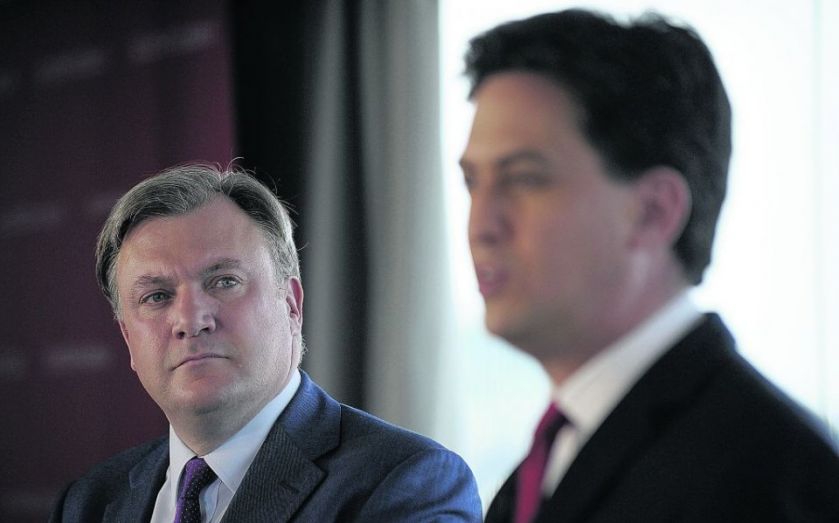General Election 2015: Labour in fight for economic credibility

Labour will try to turn the tables on the Conservatives today by launching a manifesto that puts economic competence at the heart of its bid to win power on 7 May.
“Every policy in this manifesto is paid for. Not one commitment requires additional borrowing,” the document says, while shadow chancellor Ed Balls will argue that all parties’ manifestos should be audited by the government’s fiscal watchdog.
Economists have seen Labour as less likely to reduce the government’s huge annual deficit than the Tory party, a perception that Balls now wants to challenge head-on.
In a move described by sources within the party as “self confident”, the first page of the election document will feature a so-called Manifesto Budget Responsibility Lock.
The manifesto claims that Labour will introduce new fiscal rules aimed at reducing the national debt, and delivering a surplus on the current budget in the next parliament.
In what will be seen as a challenge to potential coalition partners such as Nicola Sturgeon’s anti-austerity Scottish National Party (SNP), Labour insists that no government led by Ed Miliband will compromise on these rules. Labour also says that a Miliband-led government will “cut the deficit every year”, and that the commitment will be the first line of Balls’ first Budget.
Miliband and his party have been under pressure to prove their economic credentials, with polls consistently showing them less trusted than the Conservatives on the economy. Taking that criticism on directly today, the Labour leader will say: “This is a manifesto which shows Labour is not only the party of change but the party of responsibility too.”
Yet the Liberal Democrats say they have laid out in “unprecedented detail” their deficit reduction plans while Labour have not put a date on when the deficit will be fully eliminated.
Deputy prime minister Nick Clegg said: “By not naming a date to balance the books Labour are not coming clean with the British people about what their plans mean.”
Labour hit out at the Conservatives, accusing them of making unfunded NHS pledges. Labour party insiders say the Tories are “shredding their last semblance of economic credibility”.
In an incident reminiscent of Jeremy Paxman’s famous standoff with then Tory leader Michael Howard, Andrew Marr yesterday asked George Osborne 18 times how his party’s pledge to provide £8bn of additional funding for the NHS would be met. The chancellor declined to give any specific answers.
The Conservatives have also said they will reduce commuter train fares, without specifying where that money will come from.
David Cameron said yesterday that his party would increase the level at which people start paying inheritance tax to £1m. This policy will cost £1bn, and will be paid for by increasing pensions tax relief on those earning £150,000 or more.
The Institute for Fiscal Studies criticised both main parties for their approach to pensions, saying: “There is a danger that the tax proposals being put forward through this general election campaign will have a long term malign influence on our tax system and economic welfare.”